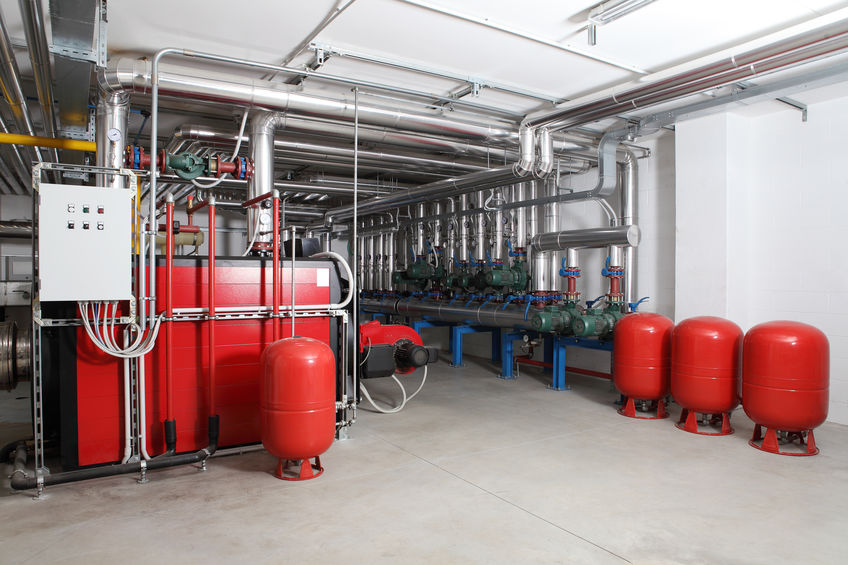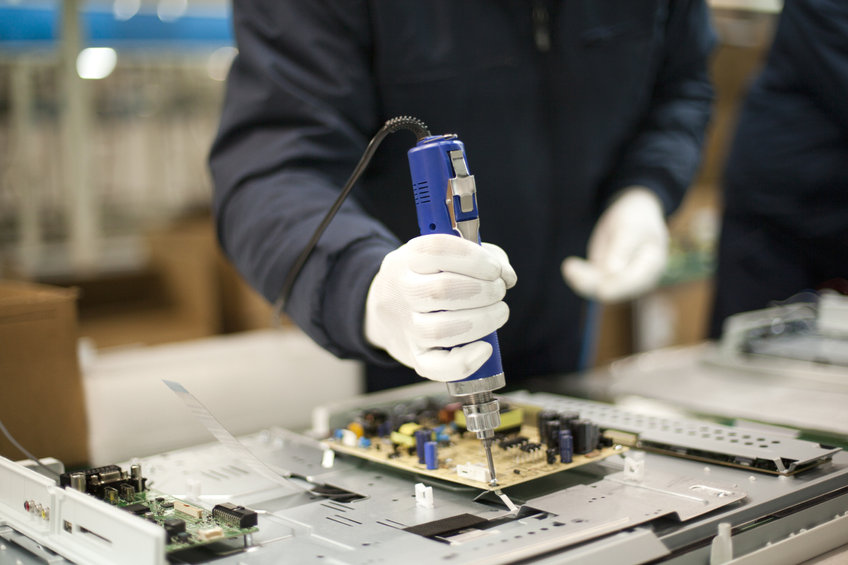Oil vs. Oil-Free Air Compressors: Choosing the Right Solution
Manufacturers rely on air compressors to power pneumatic equipment and tools, as well directly in the manufacture of products. This means choosing the right air compressor is a critical decision that directly impacts everything from productivity to product quality.
Because one of the most important aspects of the selection process is determining whether an oil-lubricated or oil-free air compressor is the right solution for your business, this blog will explain the differences between the two compressor types, explore oiled- and oil-free air compressor pros and cons and answer common questions so you can make a well-informed decision when purchasing an air compressor.

The Role of Oil in an Air Compressor
Before making a comparison between oil-lubricated and oil-free compressors, it’s important to understand the basic difference between them, as well as the role oil plays in the performance of oil-lubricated air compressors.
The difference between oil-lubricated and oil-free compressors is as follows:
Oil-free
These air compressors contain no oil within the compression chamber of the unit to reduce the likelihood of contaminating treated air. Because they are designed to operate without using oil for lubrication within the compression chamber, oil-free compressors use special coatings, such as Teflon, or water to reduce heat, friction, and wear and tear.
Oil-lubricated
Oil-lubricated air compressors use oil to provide smooth operation and aid the efficiency of the air compression process. Typically, oil-lubricated air compressors are either rotary screw or reciprocating types that include moving parts which require lubrication to prevent friction, wear and tea,r and overheating.
Oil-less
Please note that there are also oil-less air compressors, which have no oil present in the compressor package. Like oil-free compressors, oil-less units are used in applications where air purity is a requirement. However, this blog will only compare oil vs. oil-free air compressors.
In oil-lubricated air compressors, oil lubricates internal and moving components within the compression chamber to prevent friction-induced wear and tear, provide a seal to increase the efficiency of the compression process and to dissipate heat to prevent overheating. Oil-lubricated compressors are suitable for use in applications that do not have strict air-purity guidelines regarding oil contamination.
However, for applications such as food and beverage manufacturing, medical and healthcare, pharmaceutical production and electronics manufacturing, ISO 8573-1 air quality standards and/or NFPA 99 guidelines may dictate the use of very pure air that is free of oil particulate. Applications that must adhere to these guidelines will need to use an oil-free air compressor for safety and compliance purposes.
Oil- vs. Oil-Free Air Compressors: A Side-by-Side Comparison
The table below compares oil-lubricated and oil-free compressors.
| Feature | Oil-Lubricated Compressors | Oil-Free Compressors |
| Air Quality and Applications | General industry, automotive and construction and other applications where trace amounts of oil are not a concern. | Food and beverage, pharmaceuticals, electronics, medical and healthcare and other applications where oil contamination is prohibited, or where ISO 8573-1 Class 0 applies. |
| Lifespan and Durability | Long service life because oil reduces friction, wear and tear and overheating. | Shorter service life due to increased wear and tear on non-lubricated components. Lifespan can be extended through a consistent maintenance schedule. |
| Maintenance Requirements | Routine oil changes and proper disposal of oil-laden condensate. | Gearbox oil changes are necessary on many oil free compressors, and oil-free models may require professional service for controls, impellers, seals and other components to ensure full operational life. |
| Upfront and Operational Costs | Lower initial price, but there are expenses related to oil and oil disposal. | High purchase price, but a competitive operating cost because of efficiency, and reduced oil and filtration costs. However, professional service may be required to maintain a full operational life. |
| Noise Level | Offer quiet operation | The lack of oil can increase noise associated with moving components. Low sound enclosures are available for many oil free compressor types however. |
Key Applications for Oil-Lubricated and Oil-Free Compressors
While both air compression technologies have advantages and disadvantages, the single most important factor when selecting an air compressor is the air purity requirement for the application. For applications such as general manufacturing, there may be a preference for a specific technology over the other, but in applications where air purity is a requirement, an oil free compressed air will be necessary.
The following applications require the use of oil-free compressed air
Medical and Healthcare: Because air compressors used in medical and healthcare applications are used in the direct treatment of patients, the air must be extremely pure. Medical air packages are air compressors used to provide breathing air for patients, mixing air for anesthesia and powering surgical tools. Oil-free air compressors that adhere to NFPA 99 standards must be used in these applications to provide high purity, contaminant-free air for patient safety and operational reliability.
Food and Beverage: Oil contamination can spoil foods and beverages, creating a safety hazard for consumers and the potential for recalls. For this reason, oil-free air compressors must be used in direct-contact applications like ingredient mixing, container filling and packaging in food and beverage manufacturing.
Pharmaceuticals: Air purity is a critical factor in the safe, contaminant-free production of pharmaceuticals, making the use of oil-free air compressed air a requirement in pharmaceutical manufacturing and packaging.
Electronics: Electronic devices are manufactured under high-purity conditions to avoid damaging sensitive components, which can cause product defects and failures, so oil-free compressed air used in electronics production.
Textiles: Oil contamination is likely to clog and damage equipment and can potentially stain fabrics, making oil-free air compressed air strongly recommended for use in textile manufacturing.



The following applications are ideal for oil-lubricated compressors:
General manufacturing: Oil-lubricated compressors are widely used in general manufacturing for powering pneumatic tools, operating automated equipment and providing plant air for assembly and fabrication.
Automotive industry: Powering air tools and filling tires in auto repair shops and on automobile assembly lines can be accomplished with oil-lubricated compressors.
Construction and agriculture: Oiled compressors are used to power heavy-duty pneumatic tools and equipment in challenging environments where durability is an essential requirement.

Answers to Frequently Asked Questions
While one technology is not superior to another, the best technology for an application will be dictated by the air quality requirements. If there is no requirement for air purity, then the choice will depend on the budget and operational demands of the application.
Generally, oil-lubricated air compressors last longer because they are lubricated, which helps prevent friction, wear and tear and overheating. However, if properly serviced, oil-free compressors will provide a long service life
Many oil-free compressors, such as centrifugal, rotary screw and scroll compressors, are designed with advanced cooling systems that enable continuous, 24/7 operation.
Oil-free air compressors typically have a higher upfront cost, a potentially shorter lifespan if not properly maintained and can produce more noise during operation.
Partner with Air Compression Experts to Power Your Success
Selecting the right air compressor technology is critical to the success of your operation. In addition to meeting application requirements for air purity, the selected air compressor must be properly sized and installed and satisfy the system pressure (PSI) and airflow (CFM) demands of the application.
JHFOSTER is proud to be your partner in automation and compressed air. Our experts can help evaluate your application and design, integrate and support the best solution for your needs. Don’t guess on this critical investment. Contact a JHFOSTER compressed air specialist today.
